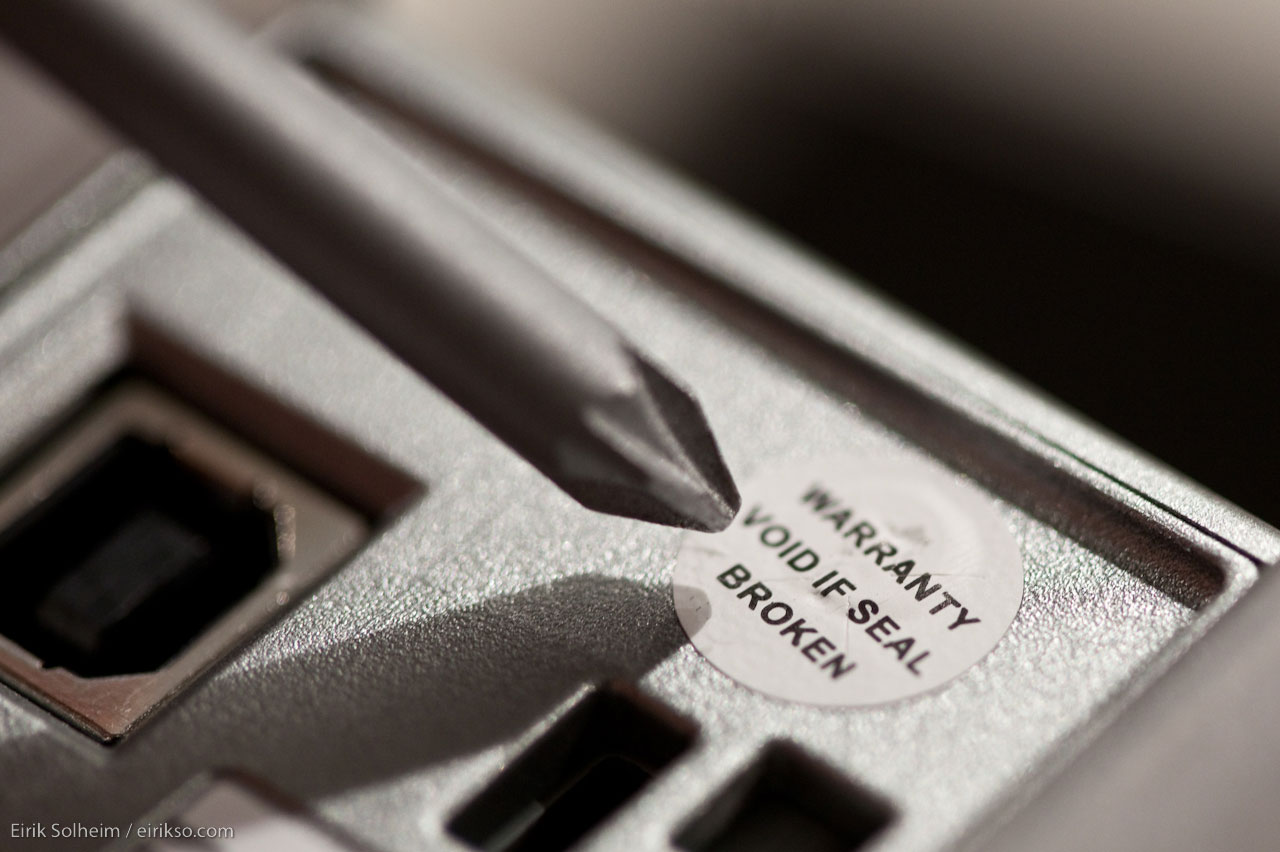FTC gives Asus, Microsoft, and Sony 30 days to change illegal warranty terms
The FTC is cracking down on 'warranty void if removed' stickers and other third-party repair deterrents.

Asus, Microsoft, Nintendo, and Sony are among the six companies to receive a warning letter from the US Federal Trade Commission over what the agency has deemed to be illegal warranty terms. Each company was given 30 days to update their policies, or face possible legal action.
We first learned of the FTC's attempt to crack down on conditional warranty coverage, including those 'warranty void if removed' stickers that are sometimes found on game consoles and laptops, three weeks ago. At the time, however, it was not clear which companies the FTC had targeted or the contents of the letters it sent out, only that it had in fact sent letters to several firms.
Motherboard was able to obtain those details by way of a Freedom of Information Act request. In addition to the aforementioned companies, HTC and Hyundai were also among those to receive a letter.
"This letter places you on notice that violations of the Warranty and FTC Acts may result in legal action," the letters state in bold. "FTC investigators have copied and preserved the online pages in question, and we plan to review your company's written warranty and promotional materials after 30 days. You should review the Warranty and FTC Acts and if necessary, revise your practices to comply with the Acts' requirements. By sending this letter, we do not waive the FTC's right to take law enforcement action and seek appropriate injunctive and monetary remedies against [company name] based on past or future violations."
Each of the letters is similar, except for the exact language from each manufacturer that the FTC has identified as violating federal law. Some of those include the removal of warranty stickers. In Microsoft's case, the FTC took issue with the company's Xbox One warranty stating, "Microsoft is not responsible and this warranty does not apply if your Xbox One or Accessory is...repaired by anyone other than Microsoft."
That is the kind of language the FTC sees as violating the 1975 Magnuson-Moss Warranty Act, which prohibits companies from charging more than $5 for a product repair or putting repair restrictions on a device that is covered by warranty. The exceptions are if a company provides free replacement parts and repairs, or has otherwise received a waiver from the FTC.
As it pertains to warranty stickers, when used, they're often found over screws or other parts of a device that make it difficult, if not impossible, to break when opening up the device. Use of these stickers is something the FTC said it is "particularly concerned" about.
The biggest gaming news, reviews and hardware deals
Keep up to date with the most important stories and the best deals, as picked by the PC Gamer team.
Paul has been playing PC games and raking his knuckles on computer hardware since the Commodore 64. He does not have any tattoos, but thinks it would be cool to get one that reads LOAD"*",8,1. In his off time, he rides motorcycles and wrestles alligators (only one of those is true).


